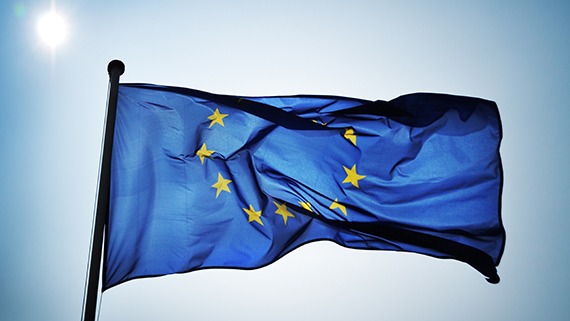EU Inc.: Europe's Bold Push for a Unified Startup Entity
After decades of fragmentation across 27 different legal systems, a groundbreaking initiative could finally unite Europe's entrepreneurial landscape under a single, digital-first corporate structure.
Ilaria Tamagno
August 13, 2025
From Petition to Policy: The EU Inc. Journey
In October 2024, a coalition of Europe's most prominent entrepreneurs and investors launched EU Inc., an ambitious campaign calling for the creation of a pan-European startup entity under the EU's "28th regime", a legal framework that would offer an alternative to national laws.
The initiative quickly gained momentum, gathering over 16,000 signatures from founders, investors, and industry leaders. Now, the European Commission has opened its make-or-break public consultation on this transformative proposal, giving the startup community a direct voice in shaping Europe's entrepreneurial future.
The Vision: One Company Form for 27 Countries
EU Inc. proposes replacing Europe's splintered national systems (GmbH, SARL, BV, S.L., SpA, etc.) with a single, standardized corporate structure that would enable startups to:
Incorporate digitally in hours, not weeks - no notaries, no apostilles
Operate seamlessly across all 27 EU countries
Access unified employee stock options (VESOP) programs
Standardize investment processes with common documentation
Raise capital from any European investor without legal complications
Think of it as Delaware's C-Corp structure, but designed specifically for Europe's digital age.
The Problem It Solves
Currently, European startups face crippling barriers when scaling across borders. As Andreas Klinger, co-initiator and investor with Prototype Capital, explains: "No Slovenian investor will touch a Portuguese entity because of tax and legal implications."
This fragmentation has real consequences. International investors regularly abandon European deals upon discovering the legal complexities involved. One edtech company lost a major angel investor just weeks before closing when the investor realized the administrative burden of investing in a German GmbH over the Christmas period.
Strong Political and Industry Support
The initiative has garnered impressive backing from Europe's highest political and business leaders:
Political Champions:
Ursula von der Leyen (EU Commission President): "I propose a new EU-wide legal status to help innovative companies grow"
Mario Draghi (Former Italian PM): Advocated for "a new EU-wide legal statute" in his competitiveness report
Enrico Letta (Former Italian PM): Called for "a European Code of Business Law" under a 28th regime
Michael McGrath (Commissioner for Democracy, Justice): Committed to preparing "a specific proposal on an EU-wide company legal status"
Industry Leaders:
Patrick Collison (Stripe)
Ilkka Paananen (CEO, Supercell )
Taavet Hinrikus (Co-Founder, Wise )
Jarek Kutylowski (CEO, DeepL )
Martin Mignot (Partner, Index Ventures)
Niklas Zennström (Founding Partner, Atomico )
The Challenges and Skeptics
Despite the momentum, significant hurdles remain:
Complexity Concerns: Critics argue that harmonizing corporate law across 27 sovereign countries could take years and face substantial political resistance from member states wanting to maintain control over their legal systems.
Tax Incentive Conflicts: Local investment incentives tied to national systems could deter domestic investors from supporting startups using the EU Inc. structure, as they might lose valuable tax benefits.
Historical Precedent: The limited adoption of the existing Societas Europaea (SE) framework, used by fewer than 5,000 companies since 2004, raises questions about whether European businesses truly want pan-European structures.
Institutional Resistance: Traditional institutions, including banks, notaries, and legal chambers, are heavily influencing the consultation process, potentially drowning out startup voices.
The Critical Moment: Public Consultation Now Open
The European Commission has opened its public consultation on the 28th-Regime company form, representing a make-or-break moment for the initiative. With a deadline of September 30, 2025, the startup community has a narrow window to ensure its voice is heard.
How to participate:
EU Call for Evidence - Submit free-text comments explaining why Europe needs EU Inc.
EU Public Consultation Questionnaire - Complete the structured survey to demonstrate startup community engagement
As Simon Schaefer, co-initiator and CEO of Factory, emphasizes: "There's political will behind this. Von der Leyen, Draghi, everybody has mentioned the 28th regime. But they don't really know what the details are. Here's where the tech industry can help."
A Transformative Opportunity
If successful, EU Inc. could represent the single biggest change to European entrepreneurship in decades. By creating a truly unified European startup ecosystem, it would enable the continent to compete globally as a single market rather than 27 fragmented ones.
The initiative's timing is strategic, coinciding with new EU commissioners beginning their five-year mandate and growing political recognition of Europe's competitiveness challenges. However, success depends on the startup community mobilizing to ensure their vision isn't overshadowed by legacy institutions protecting the status quo.
The question now is whether Europe's entrepreneurs will seize this historic opportunity to reshape their continent's business landscape, or let it slip away to bureaucratic inertia...
Here's how to cast your vote: https://ec.europa.eu/info/consultations_en
Search for: "28th regime" or "company legal status" or "EU Inc"
Or check: The official EU Inc. website at https://www.eu-inc.org/ for direct links to the consultation.
References
Entrepreneurs and investors launch EU Inc. in a push for a single pan-European startup entity - Tech.eu
EU Inc: The Future of Pan-European Startups? - The Recursive
EU Inc — Sign the petition to create a pan-european startup entity
EU Inc: A Vision for a Unified European Corporate Structure - Orrick
Startups call for new legal status to boost Europe's growth - Innovation Origins


© 2026. All rights reserved.
Bridging science, innovation & capital
COMPANY
SUPPORT
CONNECT
Bluesky

